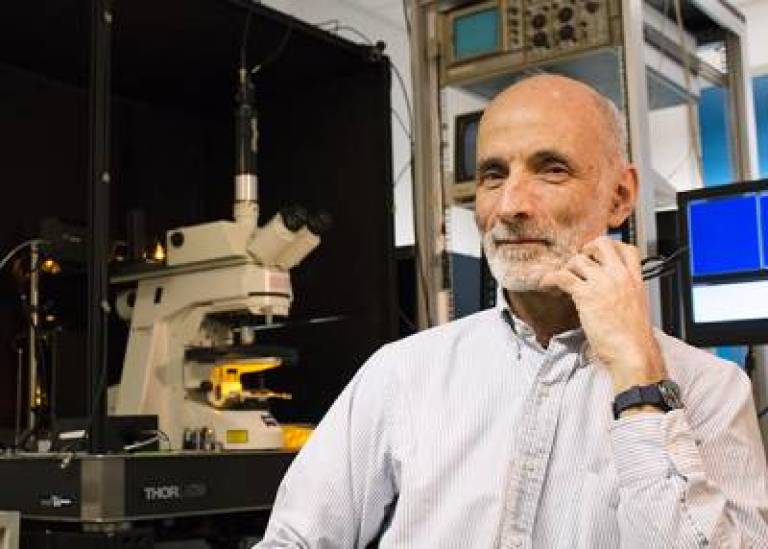World Hearing Day: Q&A with Professor Jonathan Ashmore
3 March 2023
Professor Jonathan Ashmore (UCL Ear Institute) is Bernard Katz Professor of Biophysics and a Fellow of the Royal Society, and has been a President of the Physiological Society.

You originally trained as a theoretical physicist. What attracted you to focus on research into hearing?
I was working as postdoctoral fellow at the University of California and met some of the people working in hearing research and realised that there were lots of unsolved problems about the cochlear field. This was before any molecular biology was developed and before any single cell electrophysiology happened; so I regarded understanding hearing as a challenge.
Your lab investigates the cellular mechanisms of hearing. Can you tell us more about this and why it is important?
I became interested in how the cochlear cells interact with the mechanics of sound detection. I discovered that the rows of cochlear outer hair cells can act like very fast boosters of the vibration patterns along the basilar membrane. We now know that this is because these cells express a molecule named ‘prestin’ (the technical name is SLC26A5); when the outer hair cells get damaged or begin to fail then hearing sensitivity drops by over 100 times: that is deafness.
What are some of the causes of hearing loss and what types of treatments can help?
Anything that interferes with the molecular and cellular chain of hearing sound is not good news. This can be for genetic reasons, as a result of the action of some drugs (‘ototoxic’ agents), noise or just though the plain wear and tear of age. The best treatments so far come from a proper understanding the underlying physiology – so for this reason we are much more aware of the effect of damaging sounds. But there are also some early stage developments involving modifying deficient genes (so far just in mouse models of hearing loss) and trying to rebuild the hair cells themselves. Of course, by far the most successful and widespread treatment is the development of efficient hearing aids to compensate for the lack of amplification when the cochlea itself is compromised.
What is the focus of your current research and what do you think are some of the future challenges in addressing hearing loss? How is the UCL Ear Institute helping to address these challenges?
I am currently interested in how really high frequency hearing mechanisms work as it is in the high frequencies where we begin to lose hearing first. There are some interesting technical problems in accessing this region of the hearing range. This work may help understand hearing loss that occurs with age. The UCL Ear Institute helps address these sorts of challenges as there are researchers with a wide range of expertise – from those working on molecular mechanisms to those working on cognitive processing of sound. All this expertise feeds into our research.
What would you say to someone interested in studying at the UCL Ear Institute?
Come to the UCL Ear Institute! It's an opportunity to learn many different styles of working within neuroscience with real possibilities for making a difference in hearing health.
 Close
Close

